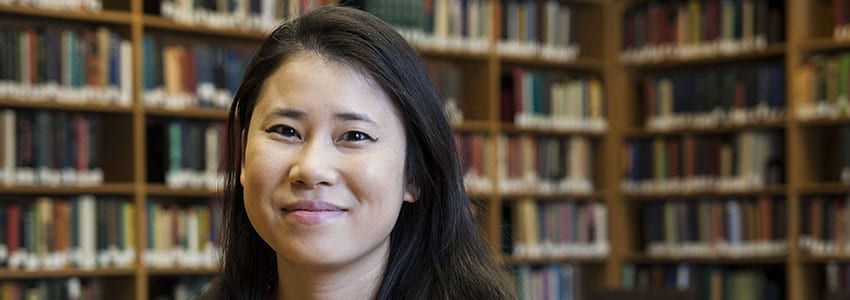It’s a good thing Robin likes to travel. Her graduate studies have taken her to conferences around the globe – from Germany to South Africa to Australia to Mexico. Out of one conference on “Diversity in Philosophy” at the University of Dayton, sponsored by the American Philosophical Association and its inclusion committees, a contingent of Michigan faculty and graduate students were motivated to take more concrete actions and create a public forum for dialogue around diversity. The discussion resulted in the founding of a Minorities and Philosophy chapter at U-M. “There are currently independent chapters at 19 other universities, and our goal is to use this national collaboration to publicize and support the wide range of efforts throughout our discipline to improve the status and experiences of marginalized members. At U-M, we’ve sponsored a speaker series to address the need for diversity and equity in professional philosophy.” The department chair and faculty have been very supporting of Robin’s efforts to elevate the attention to broadening diversity in the department. “This has been an important program. I think it’s important to find people devoted to the same issues who are willing to put the work into it. Being in the same room with people like that inspires and rejuvenates me. That’s also what I found with the Bouchet Honor Society.”
Robin is a recent inductee to this prestigious society, which seeks to develop a network of preeminent scholars who exemplify academic and personal excellence, foster environments of support, and serve as examples of scholarship, leadership, character, service, and advocacy for students who have been traditionally underrepresented in the academy.
Also a Predoctoral Fellow this year, Robin’s research provides a justice-oriented approach to understanding moral responsibility for implicit bias. “I argue that we should hold people accountable by requiring them to make amends for harmful effects of implicit bias, but we need not attribute any bad intentions or character to them in doing so. “ The end result, she claims, “allows us to develop responses to implicit bias that are both normatively and pragmatically appropriate; morally justifiable but also effective in actually bringing about positive changes in individual behaviors and social structure.”
Outside of her research, she worked with her fellow philosophy graduate students to launch an outreach program in 2011 with an after-school philosophy club in a Detroit high school. That program evolved to include a partnership with the A2Ethics organization.
“By partnering with a local community organization, we were able to host a regional ethics bowl with four participating local high schools. The students were presented with cases involving a moral dilemma, which they were tasked with responding to by applying different moral theories, developing strong arguments, and defending those views. U-M graduate students served as assistant coaches with teams from individual schools. The program really helped kids think critically and ethically, framing and shaping their viewpoints using different ethical lenses through which they see the world.”
Robin hopes the program will expand to include more local high schools and universities not only in Ann Arbor but also in Ypsilanti and Detroit , which will be facilitated by a Rackham $8,000 Arts of Citizenship grant awarded to the philosophy outreach program this year to help fund and build this program.

